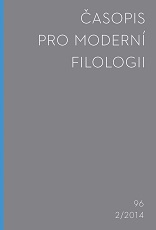Srovnání kolokací totalitního jazyka v bývalém Československu s jazykem současným
A Comparison of Collocations in the Totalitarian Language of the Former Czechoslovakia and Those in Contemporary Czech
Author(s): Věra SchmiedtováSubject(s): Language and Literature Studies, Applied Linguistics, Sociolinguistics
Published by: Univerzita Karlova v Praze - Filozofická fakulta, Vydavatelství
Keywords: totalitarian language; contemporary language; collocations; corpus-based comparison ideologization; connotation; prosody;
Summary/Abstract: The goal of this small sample study is to explore what possible effects a political situation and the ideologization of public discourse may have on language and its lexis. Using two corpora, one composed of the 1952, 1969 and 1977 texts characterizing the totalitarian language of the former Czechoslovakia and the other based on contemporary texts, the study compares the seven most frequent collocates of seven selected lemmas (four nouns and three adjectives) found in the Totality corpus and the control contemporary language corpus. The comparison shows that long-term use of ideologically motivated word combinations may influence the associative semantic component of otherwise neutral words and result in change of their semantic prosody, or at least in abuse of their prosody. Hence the delimitation of a totalitarian discourse vocabulary must take into account not only ideologically marked lexis, but also the syntagmatic aspects of the discourse.
Journal: Časopis pro moderní filologii
- Issue Year: 96/2014
- Issue No: 2
- Page Range: 165-179
- Page Count: 15
- Language: Czech

